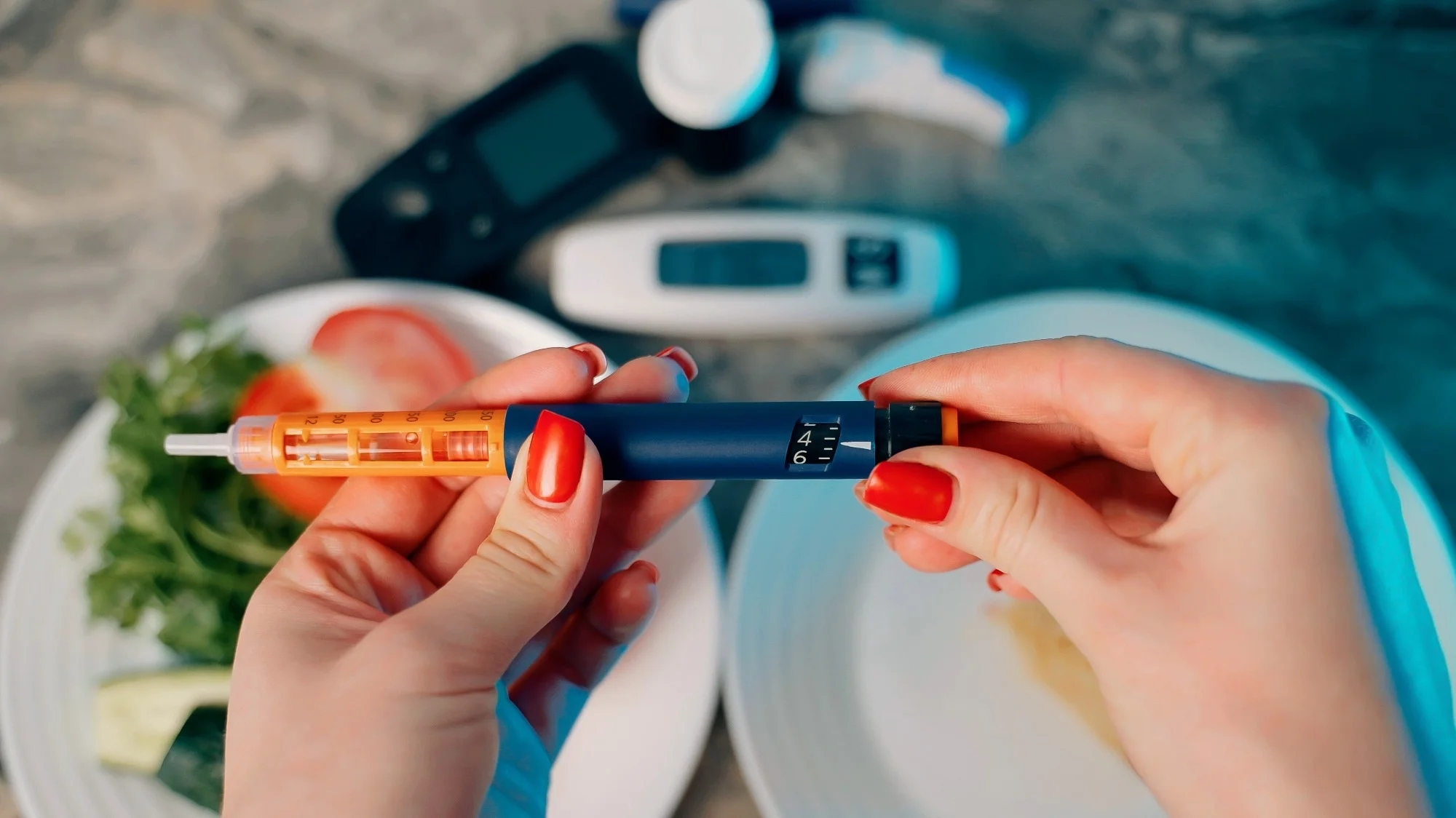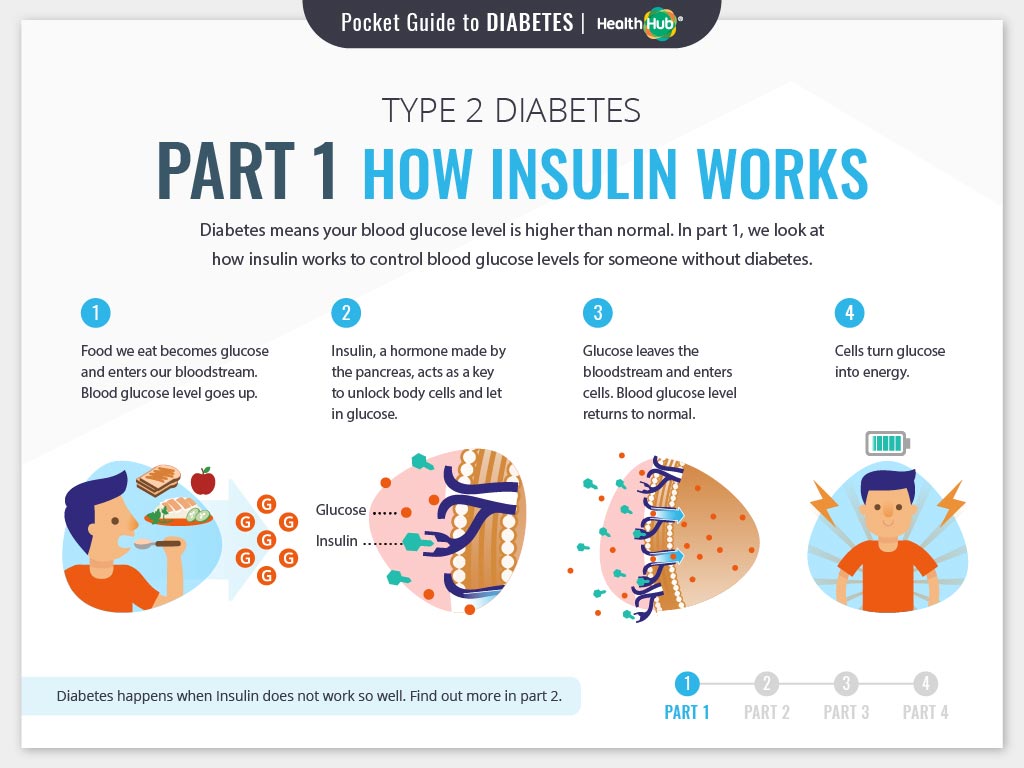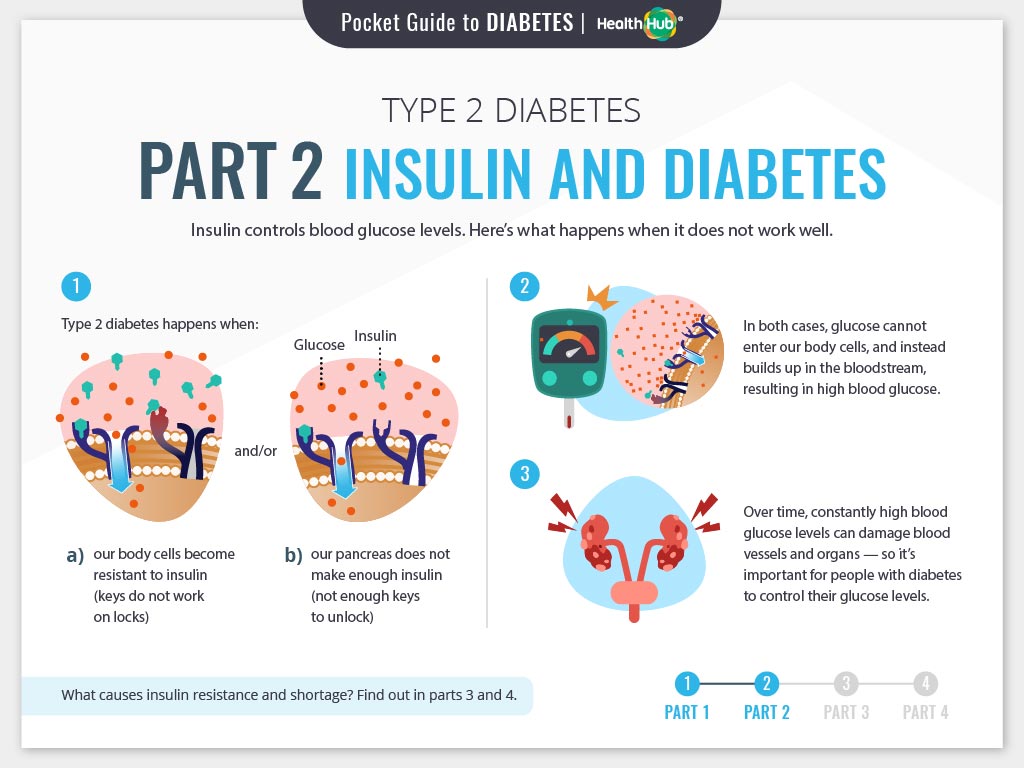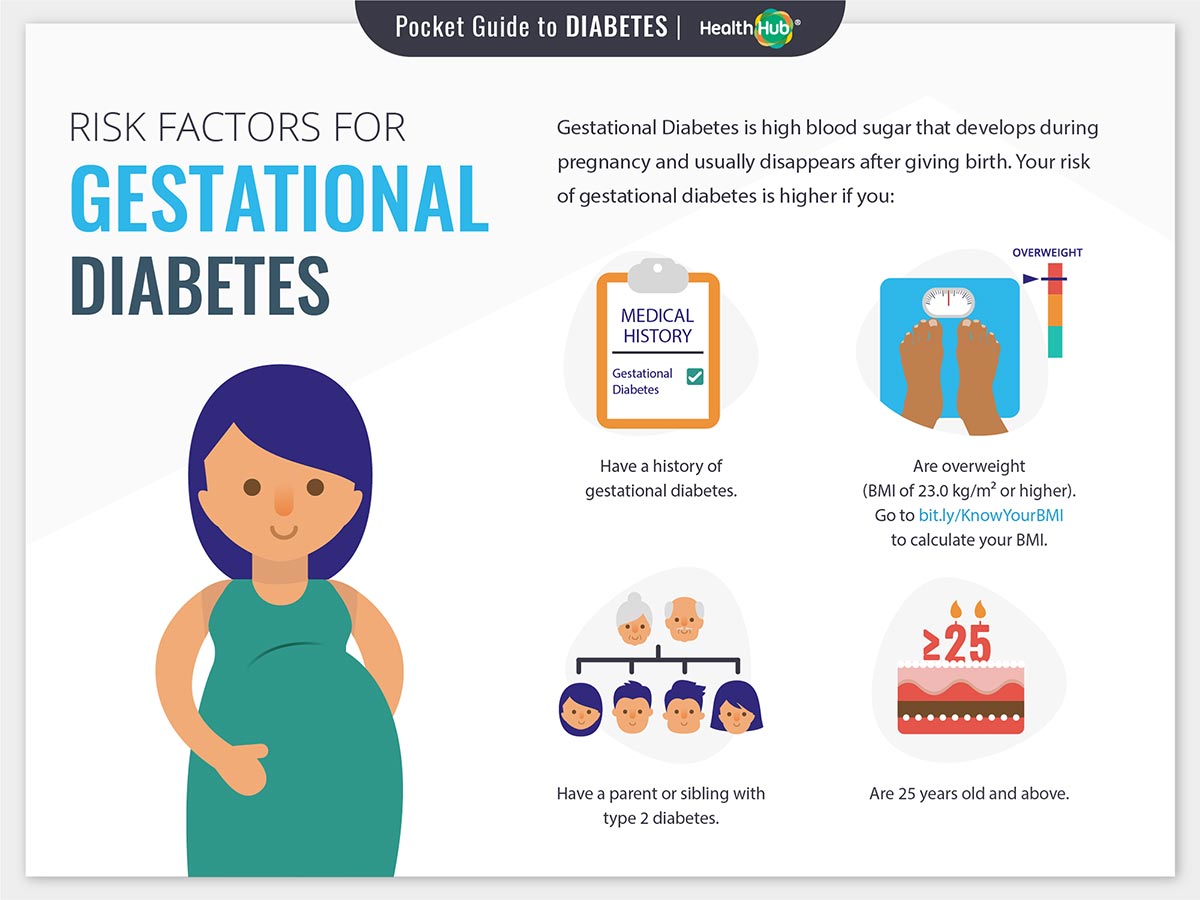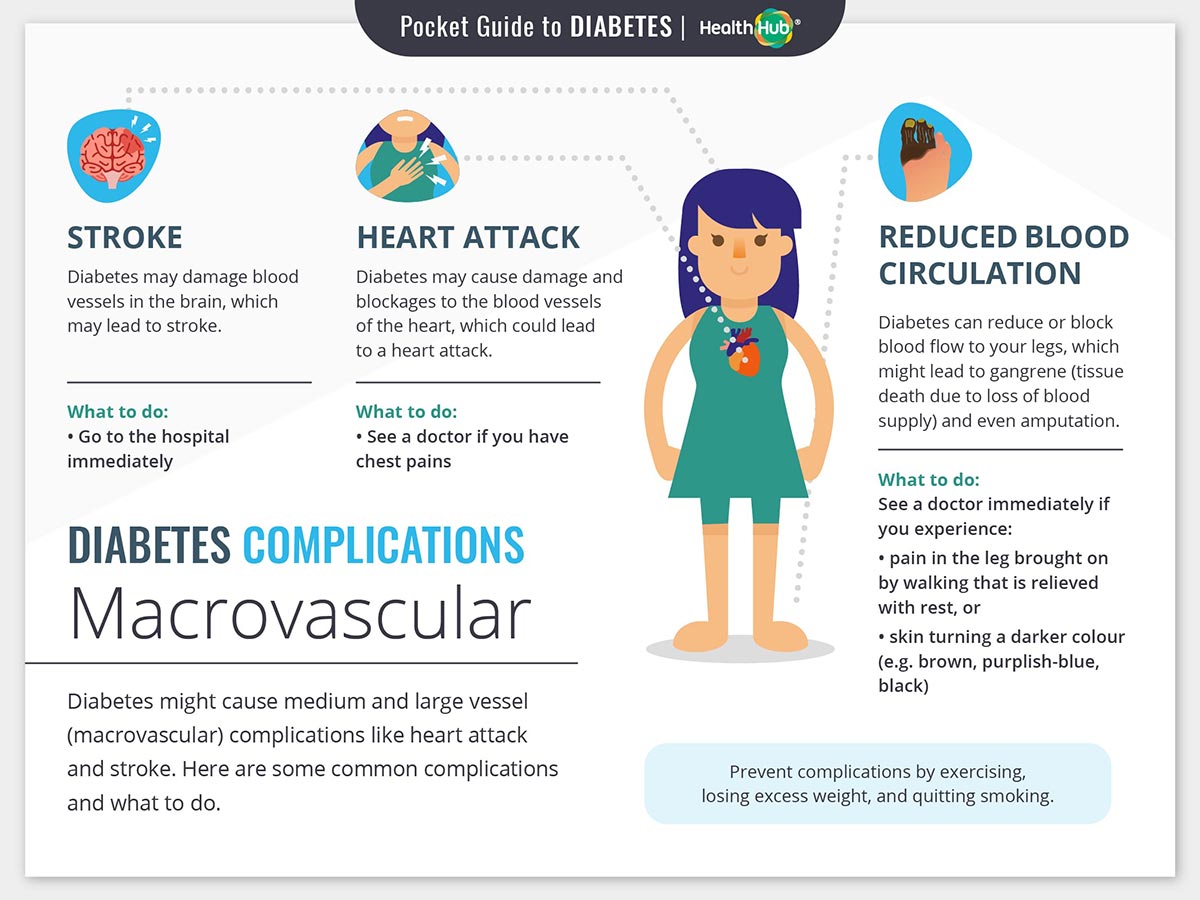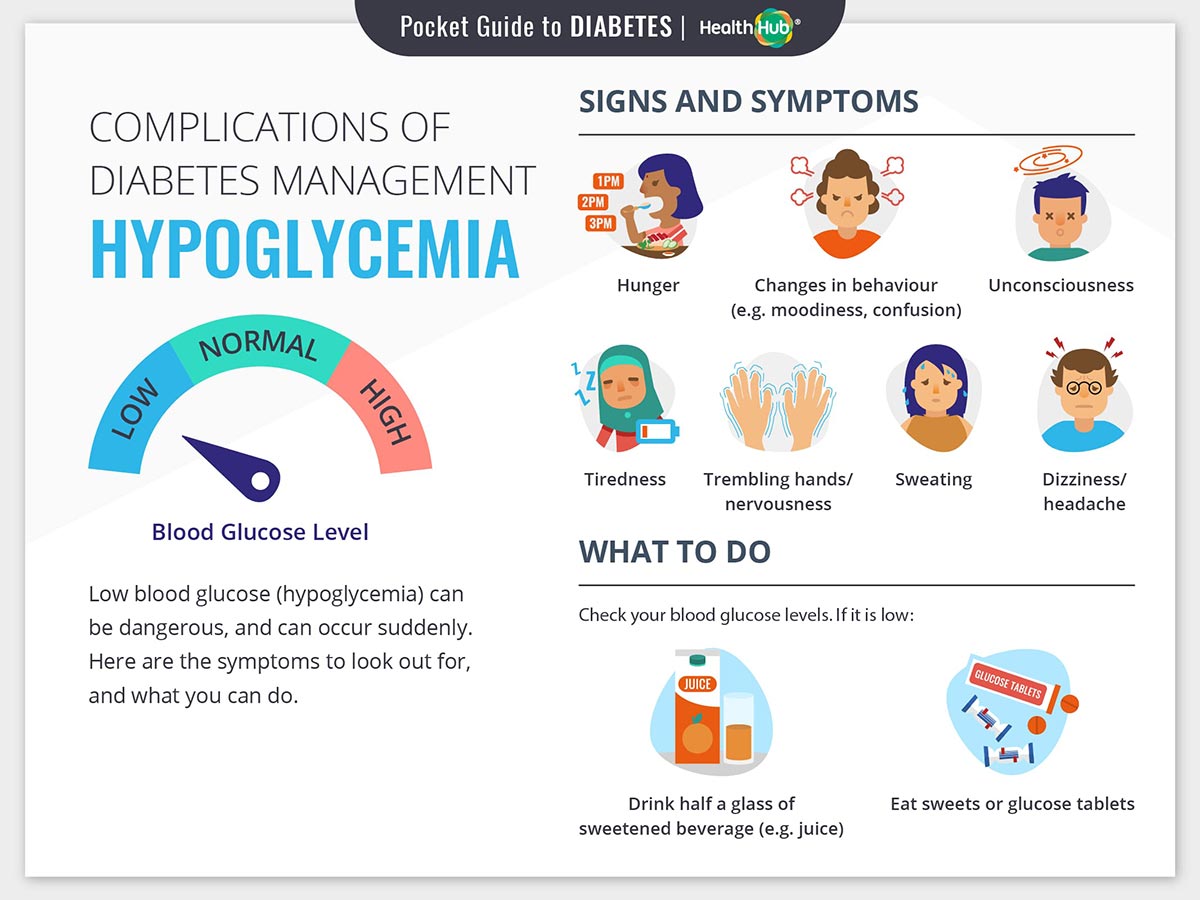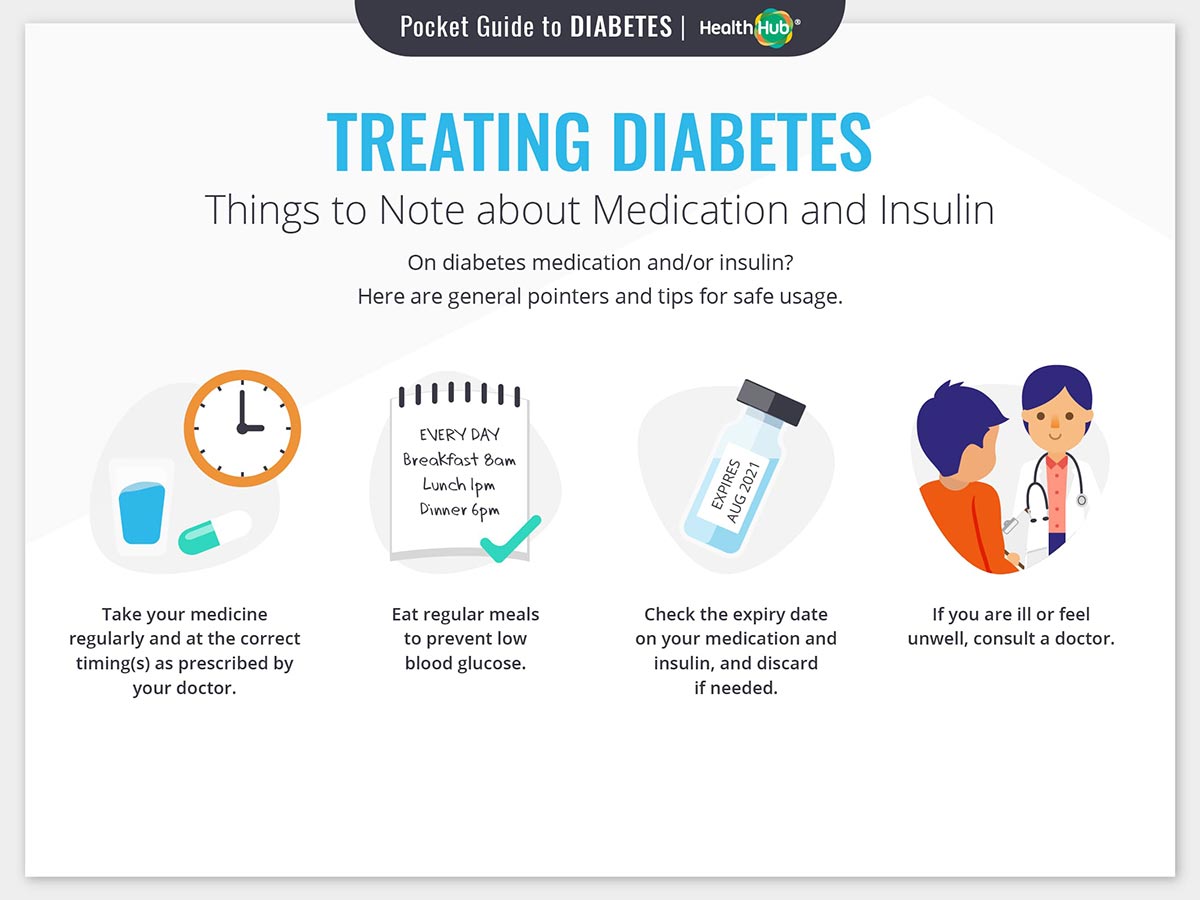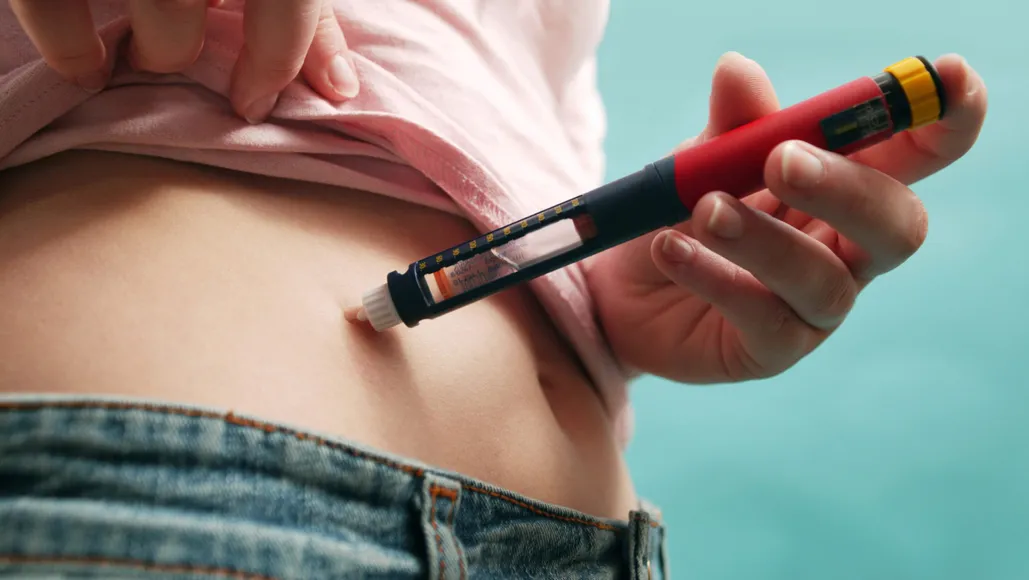
Key facts
- Insulin is a hormone that is produced by your body to break down glucose (sugar) from the food you eat, so it can be used for energy.
- If you have diabetes, your body can’t produce enough insulin, or use it effectively, to break down the glucose in your body and turn it into energy.
- All people with type 1 diabetes and some people with type 2 diabetes need regular insulin replacement to keep their blood glucose (blood sugar) level under control.
- Insulin needs to be stored and used correctly to be safe and effective.
- Taking too little or too much insulin can make you unwell, so it’s important to take it exactly as instructed by your doctor or diabetes nurse educator.
What types of insulin are available?
There are many different types of insulin available:
- Fast-acting insulin starts to work in 1 – 20 minutes. Its effect peaks at about 1 hour after the injection and lasts for 3 – 5 hours. It’s important to eat right away after injecting fast-acting insulin to avoid hypoglycaemia.
- Short-acting insulin starts to work in about 30 minutes. Its effect peaks at 2 – 4 hours after the injection and lasts for 6 – 8 hours.
- Intermediate-acting insulin starts to work about an hour and a half after you inject it. Its effect peaks at about 4 – 12 hours and lasts for 16 – 24 hours.
- Long-acting insulin works for about 24 hours at a steady dose (with no peak).
Fast- and short-acting (bolus) insulins are taken with meals to allow your body to absorb the glucose (sugar) from your food. Longer acting (bolus) insulins are usually taken daily. They last all day, supplying the ‘background’ insulin your body needs to maintain a normal blood glucose level.
Combination injections of short- and long-acting insulin are also available.
Depending on the type of insulin and delivery device you use, you will probably need to inject insulin a few times a day.
Your doctor or diabetes nurse educator will discuss your medical situation and lifestyle. They will recommend the best insulin regimen and delivery device for you.
How do I store insulin correctly?
Insulin must be stored correctly to work properly. It can be kept at room temperature (below 250 Celsius) for a maximum of one month. Spare insulin should always be kept in the fridge. Never put insulin in the freezer.
How do I take insulin?
Insulin needs to be injected to work properly. It is usually injected into the fatty tissue of your abdomen, thighs or buttocks.
There are a few different types of delivery devices available to inject insulin. For more information, read the healthdirect page on insulin devices.
Your doctor or diabetes nurse or educator will advise you about how to take insulin using your device. It is important that you always follow this advice exactly.
Contact your diabetes nurse or educator if you:
- have forgotten or missed a dose of insulin
- are late taking your insulin
- have not taken enough insulin
What should I do if I take too much insulin?
Taking too much insulin or other diabetes medicines can cause your blood sugar level to drop too low. This is known as hypoglycaemia (low blood sugar) or a ‘hypo’. Hypoglycaemia can develop into a serious situation if not addressed. If you think you have taken too much insulin, check your blood glucose level as soon as possible, and repeat this frequently.
If your blood glucose level is low, you will need to address this straight away — read the healthdirect page on hypoglycaemia for how to do this.
What should I do if I take too little insulin?
Taking too little insulin can cause your blood glucose level to rise too high. This is called hyperglycaemia (high blood sugar).
If you have forgotten or missed a dose of insulin, or have not taken enough insulin:
- Do not take the missed dose or extra insulin unless your diabetes nurse or educator or doctor advises you to do so.
- Drink plenty of sugar-free, non-alcoholic fluids such as water to stay well hydrated. Avoid alcohol and drinks containing caffeine, such as cola, tea and coffee because these can dehydrate you.
- Continue to monitor your blood glucose level regularly.
- If you find your blood glucose level stays high, you will need to address this — see the healthdirect page on hyperglycaemia.
What should I do if I run out of insulin?
It is a good idea to always keep at least one spare vial of insulin for emergencies, and to take your insulin with you when you go out.
If you run out of insulin:
- Contact your doctor or diabetes nurse or educator for advice.
- Ask your pharmacist if they can give you an emergency supply (they may charge for this service).
What should I do if my insulin is expired?
All insulin has an expiry date printed on the packet. If this date has passed, the insulin is expired and should not be used. Instead, it should be returned to the pharmacy for safe disposal.
